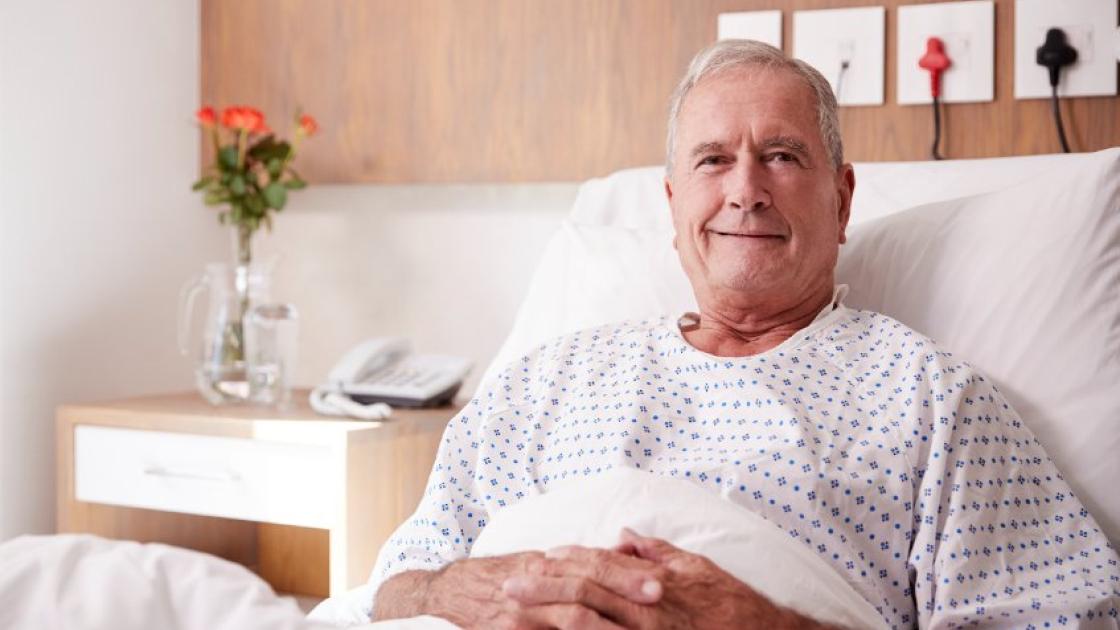
What to expect as you recover from gallbladder surgery
If you're getting ready for your surgery to remove your gallbladder (cholecystectomy), it's normal to feel a little anxious. One of the best ways to ease your concerns and improve your surgical outcome is to know how to take good care of yourself following your procedure.
Here are some important things you should know to help your recovery go smoothly.
Going home after your surgery
Whether you've had a minimally invasive (laparoscopic) or open cholecystectomy, your medical team will monitor you closely for a period of time immediately following your procedure. This is done to help make sure there are no immediate complications and to make sure your pain is well controlled.
Once you can move around safely and are medically stable, your medical team will clear you to go home. When you first get home, you can expect to notice things like:
- Mild swelling in your abdomen
- Bloating, diarrhea and/or constipation
- Fatigue
- Pain
While uncomfortable, these symptoms are usually mild and go away within a few days to a couple of weeks. Call your doctor if you have any concerns, or if your symptoms don't improve.
Resuming typical activities
Common questions patients have after a cholecystectomy include "When can I get back to normal activities?" or "When can I go back to work?"
Generally speaking, most people who have had a minimally invasive surgery can get back to their normal daily and occupational duties within 2 weeks. Open gallbladder surgery requires a longer recovery time—usually around 4 to 6 weeks. These timeframes are estimates, and it's helpful to remember that every person recovers at their own pace.
Here are a few things you should avoid early on in your recovery to prevent complications or delayed healing:
- Avoid lifting heavy objects (nothing more than 10 lbs.) or anything that would cause excessive strain. This can include children, car seats, bags of pet food or kitty litter, heavy backpacks or grocery bags.
- Refrain from vigorous exercise and strenuous activities including jogging, biking and lifting weights until you are cleared by your doctor.
- If you're sexually active and have questions about when you can resume physical intimacy, ask your doctor.
- Do not use a hot tub, bath tub or go swimming until your doctor says it's safe to do so.
In the meantime, be sure to get plenty of rest and walk a little bit more every day, which will help with recovery.
Helpful dietary habits
As you recover, it's helpful to eat a nourishing diet that will give your body the nutrients needed to heal and recover. Focus on whole foods like vegetables, fruits and whole grains, as well as lean protein sources like poultry. You might find it easier to eat multiple smaller meals throughout the day instead of a few large meals. Unless your doctor tells you otherwise, be sure to drink plenty of fluids, too.
It's not unusual to have digestive upset for a little while after surgery. If you're having constipation, do your best to avoid straining or forcefully bearing down during bowel movements. Your doctor might recommend a fiber supplement or gentle laxative to ease straining. Diarrhea is also common, but it should get better within a few weeks. Call your doctor if it doesn't.
Medication and incision care
For your safety and comfort, take any prescription medication only as directed. It's our job to make sure you understand what, when and how much of your medication to take each day. If you're not clear about something, just ask!
Your doctor will likely tell you it's okay to shower within a day or two after going home. While showering, you can gently wash the area near your incision with warm, soapy water. Gently pat the incision completely dry and don't leave it submerged in water.
Always keep your incision clean and dry and be on the lookout for signs of infection including redness, swelling, pus, warmth, pain and fever. If your clothing irritates your incision, you can cover your incision with a dry bandage that you should change every day.
If your incision is secured with strips of tape, stitches or staples, try not to touch them. Leave them be, either until the strips fall off or until your doctor removes them during a follow-up visit (usually about 2 weeks after your surgery).
When to call the doctor
Call your doctor if you have any concerns during your recovery from gallbladder surgery. Your medical team will want to know about certain issues if they arise, as these could be signs of potential complications.
Some specific things to call your doctor about include:
- Inability to drink fluids or take medication
- Pain that doesn't get better with pain medication
- Inability to pass gas or stool
- Any signs of infection
- An open incision, or loose stitches or staples
- Excessive bleeding from the incision
- Yellowing of your skin or eyes
- Pain, redness, warmth and/or swelling near your calf, knee or groin (this could be a sign of a blood clot)
It's unlikely, but if you experience more serious issues like trouble breathing or fainting, call 911 or have someone drive you to the nearest emergency room.
Are you prepared for your gallbladder surgery?
At SIU Medicine, we're committed to helping all of our patients feel well-informed and well prepared. If you have questions about your upcoming surgery, call us today at 217-545-8000 to speak to a member of your medical team.




